Ship named as suspect for Israeli oil disaster
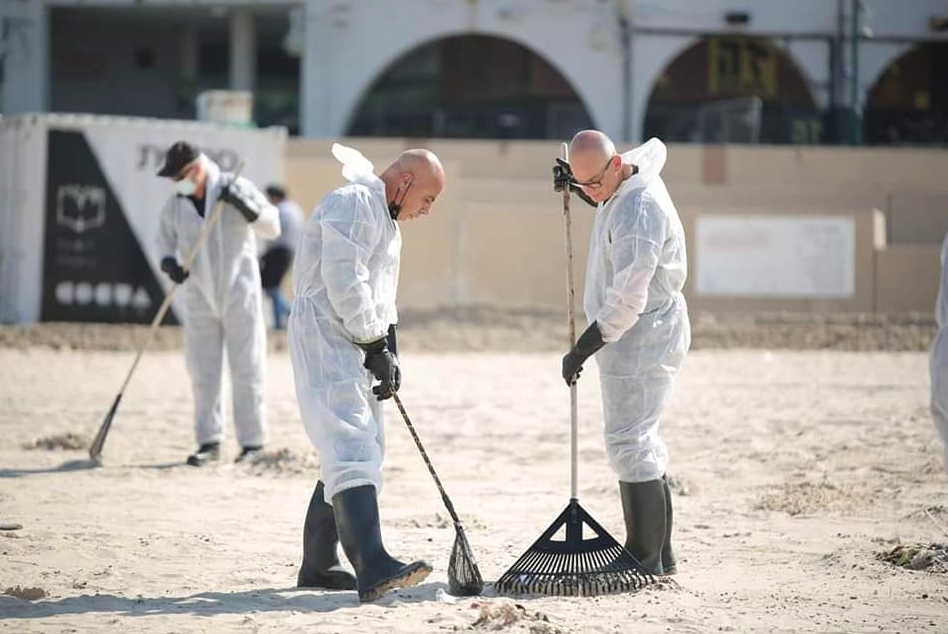
Israeli media have named one of the suspects for the enormous amount of tar washing ashore on its beaches. A court ban has now been partially lifted which has allowed media to report that the Minerva Helen is one of the suspects.
UPDATE: 1Mar21. According to gCaptain, an Israeli team, in coordination with Greek authorities, carried out a surprise inspection of the Minerva Helen while it was docked at Athens’ Piraeus port over the last weekend in February. The ship is no longer suspected of being responsible for the spill, said Israel’s Ministry of Environmental Protection.
The crude oil tanker sailing under a Greek flag is currently anchored off Cartagena in Spain and was named by the Times of Israel, among others. The oil spill has seen almost all of Israel’s Mediterranean beaches closed down.
While the massive clean up is underway people have been urged to stay away from the country’s beaches after some civilian volunteers were hospitalised, possibly for inhaling toxic fumes. Officials have warned only organised efforts with proper protective equipment should continue.
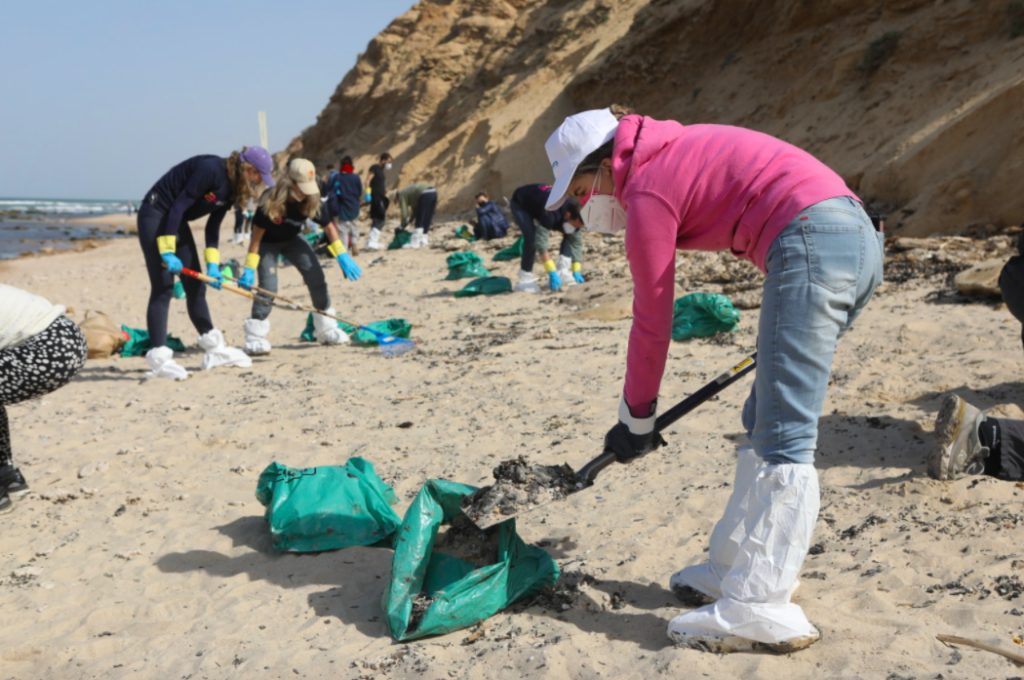
‘The enormous amounts of tar emitted in recent days to the shores of Israel from south to north caused one of the most severe ecological disasters to hit Israel,’ says Israel’s Nature and Parks Authority.
Minister of Environmental Protection Gila Gamliel says her “moral obligation to the public is to locate those responsible for the event.
“We have the possibility of suing the insurance company of the ship that is responsible for the pollution and we will do everything to locate it,” Gamliel says.
“We are making every effort to find those responsible for the disaster.”
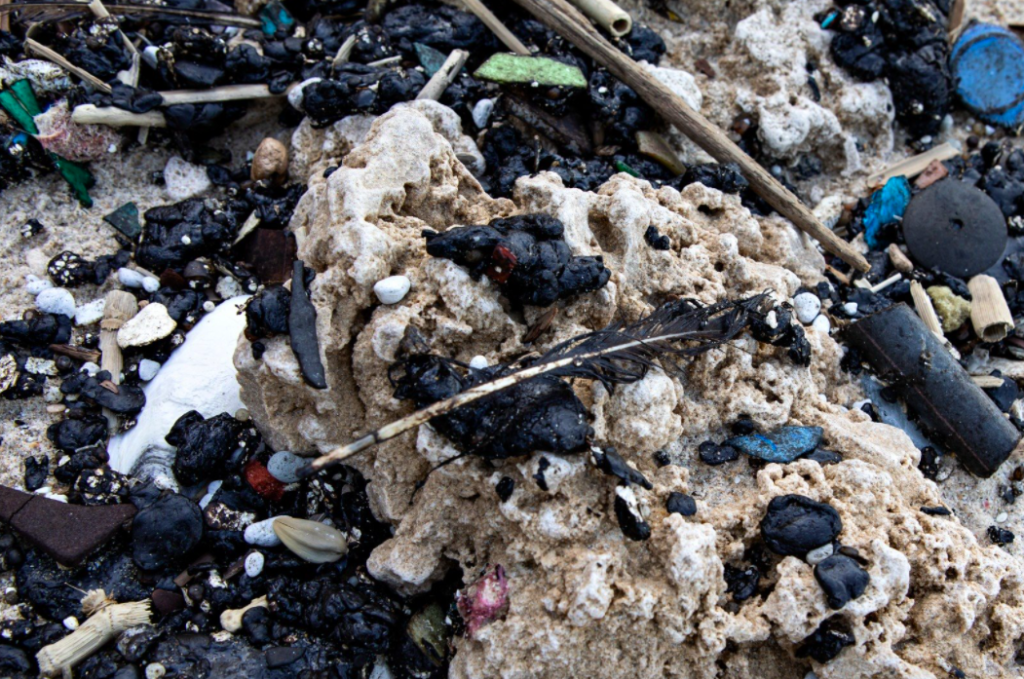
Richard Silverstein says speculation is rife as to why the incident occurred. One theory being proposed is that the alleged perpetrator Minerva Helen suffered a malfunction causing the massive discharge. Another is that the oil was deliberately dumped as it was ‘illegal’.
Silverstein says Israeli authorities imposed the previous media gag order so that the ship’s owners would not attempt to destroy evidence.
The Greek company Minerva Marine (which owns the alleged culprit) denied any involvement, telling the Times of Israel: “We are not the source of the leak.”
This comes after it has previously been accused of being involved in an oil spill just off Copenhagen in 2008.
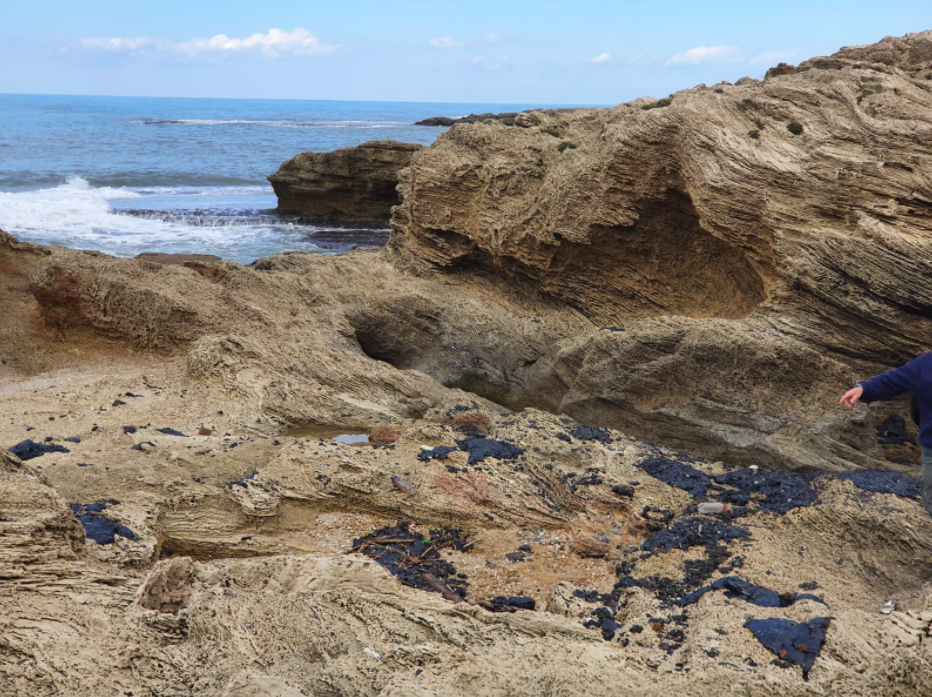
According to Professor Alon Tan, speaking to i24news, the oil spill was identified eleven days prior to reaching the Israeli beaches. He says the Israelis aren’t properly connected to European networks and that the challenge is that ministers who get responsibility for environment have earned the ‘booby prize’, and this leads to serious compromises. Tan is currently running for office.
The Guardian estimates 1,000 tonnes of tar washed up, apparently brought in by high waves from a large storm that hit last week.
It says Israeli investigators are using satellite images and wave models to narrow the search, with several possible culprit ships being looked at.
Investigators hoped they might have found an extremely large clue that washed up on a beach in southern Israel late last week: a 17-metre (55ft) fin whale.
An autopsy found oil-based liquid in its lungs, and although it was not certainly related, an analysis of when the whale died may help point to a timeframe for the spill.
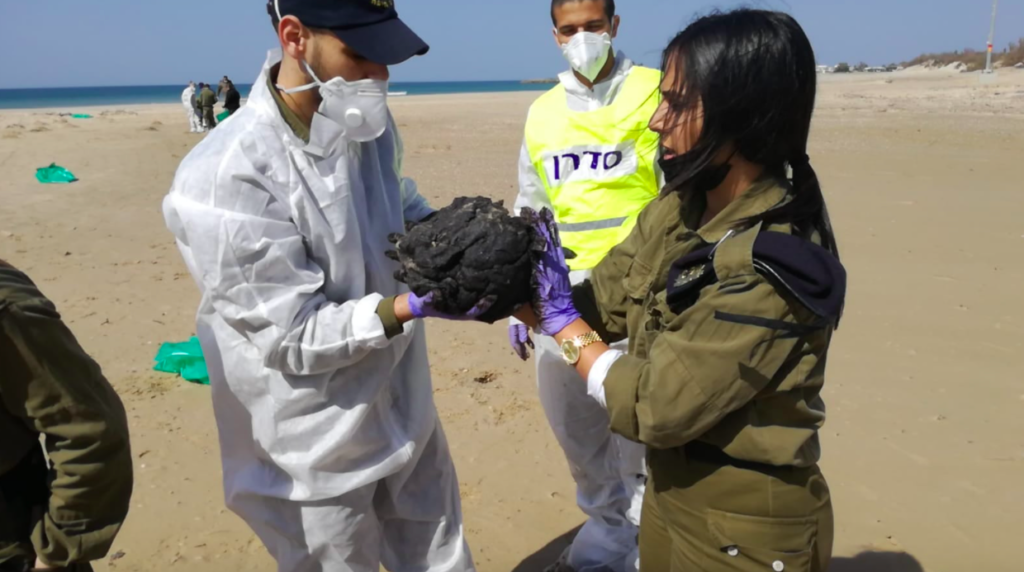
“In Israel, we have maritime domain blindness,” Shaul Chorev, a retired rear admiral in the Israeli Navy who is now head of Haifa University’s Maritime Policy and Strategy Research Centre, told the New York Times. “Our activities are always focused on foiling terrorists’ activities, but that’s not the whole picture of security in the sea.”
Chorev says preventing future oil spills from reaching the coastline would not only require Israel to invest in satellites and other tracking devices, but also to assign a government body with the clear responsibility of monitoring its coast for ecological disasters as well as containing them.
Environmental activists warned while the damage caused by the spill was significant, a leak by one of the natural gas rigs off Israel’s coast could be even more destructive. Israel has invested heavily to develop natural gas fields off its coast and began exporting gas to Egypt in late 2019.
“This should be a wake up call,” Maya Jacobs, the director of Zalul, an organisation that advocates preserving bodies of water in and around Israel, told the New York Times. “We must step up oversight of the rigs immediately and transition to using renewable energies.”
Images courtesy of ecoocean.org.










